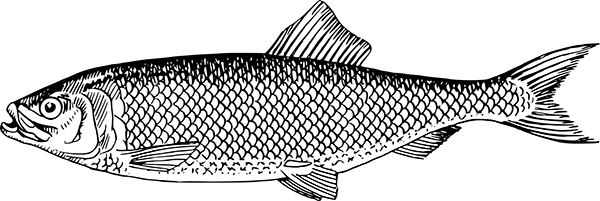On the derivation of the word herring and the uncertainty attached to it, along with that, similarly uncertain, of the kipper
ETYMOLOGY
Herring
Originally the word herring was thought to derive from the etymological root heer (Germanic, meaning army and assumed to be a reference to the size of the herring shoals).
This was disputed by the C19th philologist Schrader, who argued that it derives from the alternative German root hero (Old High German haring, Old Slavonic seru, Indo-Germanic kero) meaning blue grey.
It may, of course, have originated in an Indo-Germanic pun, summoning up the image of a grey blue army.
Kipper
The word kipper comes with a range of etymological possibilities. In Old English cypere is a male salmon and the kippering (splitting and cold smoking) of salmon long predated the arrival of the kipper we know today.
Cypere in turn may come from Old English coper (copper). Others point to the kip of a male salmon, the hook it develops on its bottom jaw in the breeding season.
Another line links it to Old Norse kjapt (briskly, impetuously) or kippa (snatch, pull, jerk); to Middle English and Dutch kippen (seize, catch, grip).
Yet another links it to Middle Low German schippere, which is apparently cognate with skipper, placing the smoked fish in charge of the boat.
You pays your money, you takes your choice with etymologies.
